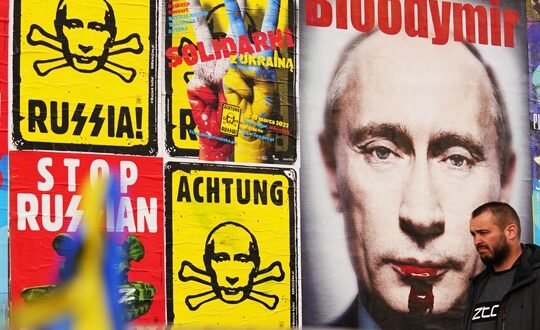Today’s standoff between Russia and the West over Ukraine can be traced back to 2004, a little more than a decade after the end of the Cold War. At the time, Russian President Vladimir Putin was just embarking on his second term, and he began nurturing a cult of personality, voicing grievances about perceived threats on Russia’s security perimeter, and positioning himself as the defender of Russia’s great power status.
By some accounts, Putin’s sense that Russia is under threat goes back to historic invasions of Russia: Batu Khan’s in the 13th century, Karl the XII’s in the 18th, Napoleon’s in the 19th and, finally, Hitler’s in the 20th. His historical gripes also extend to the Soviet Union’s first leader, the Bolshevik revolutionary Lenin, who Putin says weakened Russian territorial integrity by “creating” Ukraine—a contested revisionist claim. But whatever the precise length of this timeline of perceived injustice and threat, it has been abundantly clear since the mid-2000s that Putin is dissatisfied with the status quo of Russia’s position in the world.
 Eurasia Press & News
Eurasia Press & News




